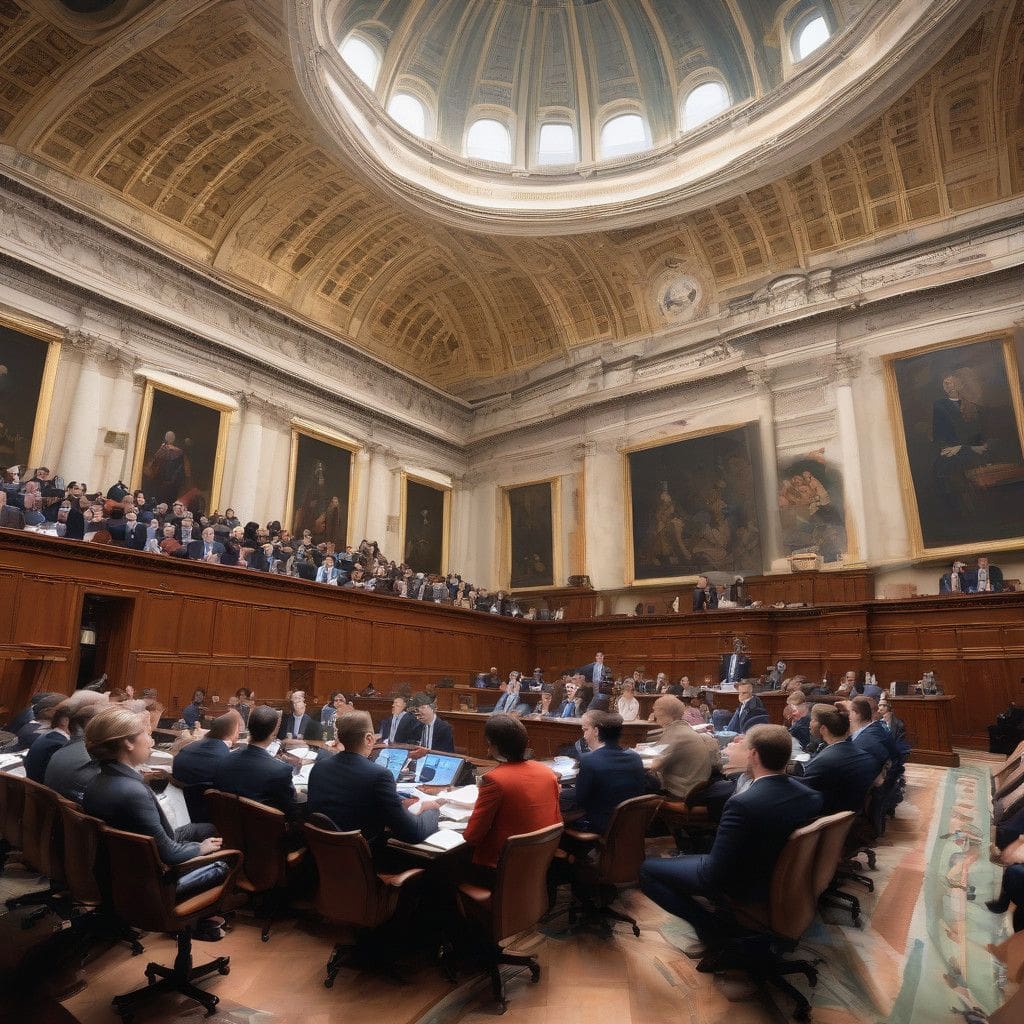The recent hearing of the US Securities and Exchange Commission (SEC) showcased a significant confrontation between lawmakers and the agency regarding its policies on cryptocurrencies. SEC Chair Gary Gensler faced bipartisan scrutiny as representatives from both sides of the aisle accused the agency of stifling the burgeoning cryptocurrency industry. This tension highlights the urgent need for clear regulatory frameworks to foster innovation while ensuring compliance.
During the hearing, Gensler defended the SEC’s regulatory stance, asserting that existing securities laws provide an adequate framework for managing digital assets. He emphasized that the agency aims to protect investors and maintain market integrity, referencing several Supreme Court rulings that delineate the economic nature of assets. Gensler described the crypto industry as a space rife with criminality and regulatory non-compliance, justifying the SEC’s stringent oversight.
Despite Gensler’s defense, lawmakers, including Republican Commissioner Hester Peirce, voiced strong concerns over the SEC’s vague and inconsistent regulatory guidelines. Peirce specifically pointed out that this ambiguity has created confusion within the industry, adversely affecting crypto sales and hindering innovation. This bipartisan criticism underscores a growing frustration among lawmakers who feel that clear guidance is imperative for the industry to thrive.
One of the contentious points of discussion was a 2022 SEC bulletin that requires public companies holding cryptocurrency assets to list them as liabilities. Gensler defended this policy by citing a series of high-profile bankruptcies, suggesting that such transparency is necessary in protecting investors and preventing systemic risk. However, critics argue this approach could disincentivize corporate investments in crypto, further hampering potential growth.
As political pressure mounts, especially with election season approaching, Gensler hinted that the SEC might revisit regulations concerning corporate share buybacks. Recent court rulings against the SEC’s prior efforts add another layer of complexity to this regulatory landscape. If these discussions bear fruit, it could signify a shift toward a more flexible regulatory environment, but questions remain about how this will impact the broader crypto market.
The fallout from this hearing raises critical questions about the future of cryptocurrency regulation in the United States. Stakeholders across the industry are left contemplating how the SEC’s stance may evolve and what that evolution means for both startup innovators and established players in the crypto space.
In conclusion, the intersection of cryptocurrency and legislative oversight is at a pivotal junction. The push from lawmakers for more transparent and clear regulatory guidance could potentially unlock new avenues for growth within the crypto industry, promoting innovation rather than stifling it. As this debate continues, the ultimate direction of US cryptocurrency policy will significantly influence the global digital asset landscape.












